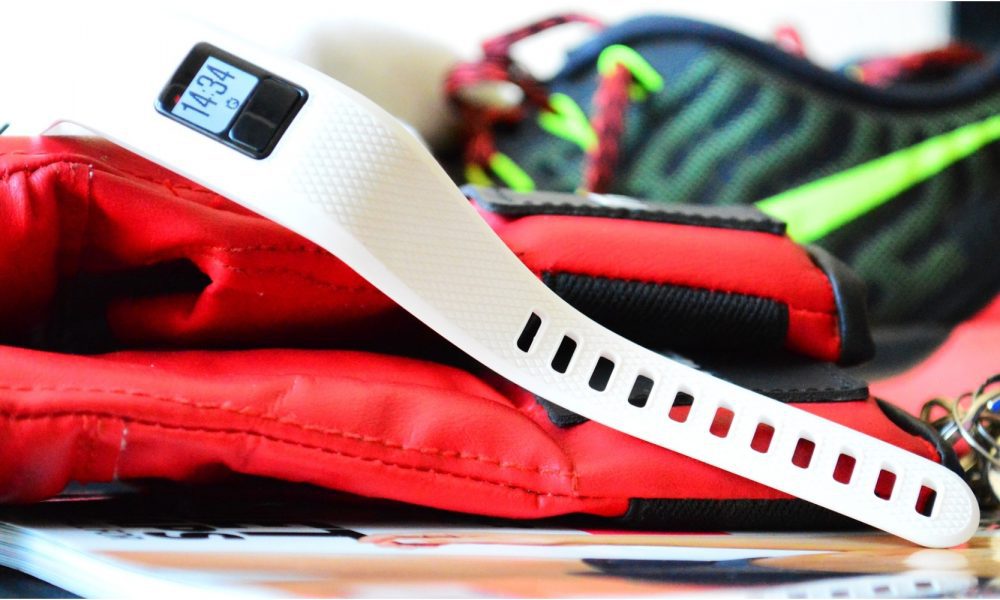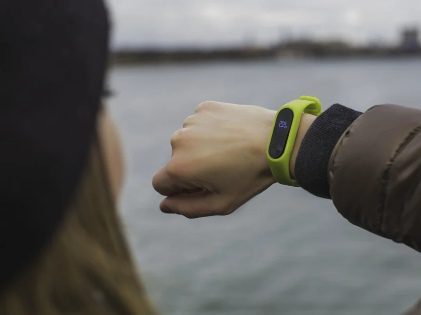
Is Your Fitness Tracker Accurate?

Fitness trackers help measure not just the number of steps taken. It also helps monitor heart rate, the number of calories burned, the body’s metabolic rate, and sleeping patterns. It is useful in clinical trials, research centers, health insurers, and health and wellness campaigns. However, these devices are not always correct. Several factors influence the accuracy of these fitness trackers. The researchers believe that they provide the most accurate information when someone in their 20s or 30s, with light skin tone, an average fitness level, and a “purposeful” walk uses it.
Step Counters: How Accurate Do You Think They Are?
 The step counters provide a comprehensive count of the number of steps taken. These gadgets approximate it using an accelerometer. Step counters employ electromagnetic sensors that can detect any movement. These fitness trackers use sophisticated machine learning algorithms and artificial intelligence. And it can recognize the pattern which counts as one step.
The step counters provide a comprehensive count of the number of steps taken. These gadgets approximate it using an accelerometer. Step counters employ electromagnetic sensors that can detect any movement. These fitness trackers use sophisticated machine learning algorithms and artificial intelligence. And it can recognize the pattern which counts as one step.
Step counters can also take additional parameters into accounts, such as height, weight, and age. Furthermore, they can provide the most accurate counts when people walk with purpose and normally. However, in the process of development,’ most step counters use data from college students in their early twenties.
However, the walking pattern is visibly affected by age. The walking manner and opaqueness of a youngster and an older woman will not be the same. As a result, errors arise. In recent days, they have been provided with biometric information to make step counts more accurate.
According to one research, the fitness trackers undercounted the total number of steps over half of the time. So, if you want to compare your daily activity levels, a step counter might be a useful tool. If you’re striving for the fabled 10,000 steps each day, your estimate may be incorrect. Don’t compare your steps to others’ because they aren’t counted equally for all of us.
Your Skin Tone And Exercise Intensity Can Affect Your Heart Rate, Count.
 The majority of fitness trackers use photoplethysmography to calculate the heart rate. This device measures blood volume by beaming a green LED light into the wrist. If you exercise, your heart beats faster, causing more blood to be pumped to the blood vessels and more green lights to be absorbed.
The majority of fitness trackers use photoplethysmography to calculate the heart rate. This device measures blood volume by beaming a green LED light into the wrist. If you exercise, your heart beats faster, causing more blood to be pumped to the blood vessels and more green lights to be absorbed.
The blood wanes away between pulses, absorbing less light. The device calculates heart rate based on these measurements. The green light had to penetrate through the skins to measure the blood volume, which may cause inaccuracies, but the more the melanin content, the more likely it is to be absorbed. Additionally, the studies found that the error rate during activity was 30% higher than at rest. Tattoos and dark skin can also contribute to the inadequacy of your wrist- or fitness trackers.
Red light is more accurate and reliable than green light. However, movement patterns are easy to disregard. So many gadgets even now depend on the green light to assess heart rate during exercise. The greater the variability in our workout, the greater is the distinction.
Overall, some heart rate monitors work well under certain conditions. And if you are trying to track heart rate for fun or to start comparing the intensity of your workouts nonchalantly—keep in mind that they are not ideal.
Calorie Counts Can Really Alter The Accuracy Rate Of Your Fitness Trackers.
 Things get a little trickier here. Fitness trackers use proprietary algorithms to calculate the calories burned or the amount of energy spent. To get more accurate information, you can customize your tracker with personal information such as age, gender, weight, height, etc. And you know your basal metabolic rate or the number of calories burned.
Things get a little trickier here. Fitness trackers use proprietary algorithms to calculate the calories burned or the amount of energy spent. To get more accurate information, you can customize your tracker with personal information such as age, gender, weight, height, etc. And you know your basal metabolic rate or the number of calories burned.
According to one study, no device had an error rate of less than 20% when calculating calories burned. Regardless of how good the algorithms are, inaccuracy makes a difference in the calorie counts. After all, humans are not machines, and these algorithms are for machines. The calorie counts were discovered to work most accurately for white males in their 30s with average fitness levels.
Fitness trackers can help customers gain knowledge regarding themselves, recognize patterns, and analyze behavior. But the information from this equipment is not something you can consider as the absolute truth. It would help if you consult a healthcare expert to monitor and track your health.
More in Fitness
-
`
Amanda Bynes Pregnant at 13? Debunking the Rumors
In recent years, the internet has been ablaze with rumors surrounding former child star Amanda Bynes, particularly regarding allegations of a...
July 1, 2024 -
`
Can Baking Soda Clean Your Lungs?
Years of inhaling cigarette smoke, pollution, and other toxins can leave you longing for a way to cleanse your lungs. The...
June 27, 2024 -
`
How to Build Muscle Mass After 60? 5 Proven Strategies
Curious about how to build muscle mass after 60? You are not alone. And the good news is that it is...
June 20, 2024 -
`
Prediabetic Foods That Can Lower Your Blood Sugar in 2024
Prediabetes is a health condition characterized by blood sugar levels that are higher than normal but not high enough to be...
June 13, 2024 -
`
Kelly Clarkson’s Weight Loss Journey | Here Are the Details
Kelly Clarkson’s weight loss has been a hot topic among fans and media alike. The iconic American singer and host of...
June 3, 2024 -
`
Essential Vitamins for Gut Health – A Comprehensive Guide
Our gut does more than just digest food – it plays a vital role in immunity, mood, and overall health. But...
May 30, 2024 -
`
Looking to Build A Stronger Sculpted Back? Try Cable Back Workouts
Back workouts using cables, or cable back workouts as they are commonly known, have become the gold standard for anyone aiming...
May 22, 2024 -
`
How Much Water Should I Drink on Creatine? Hydration Tips
Creatine, a popular supplement among athletes and fitness enthusiasts, has gained widespread recognition for its ability to enhance muscle strength, power,...
May 17, 2024 -
`
What Is Bruce Willis’s Net Worth? Get the Inside Scoop Here!
Bruce Willis, the action hero who has saved the day countless times on screen, has built a legendary career. But how...
May 11, 2024















You must be logged in to post a comment Login